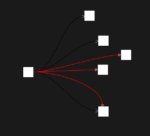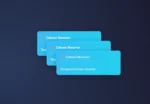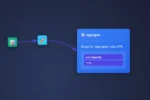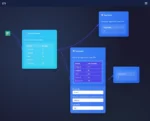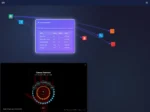Businesses today navigate an ocean of data, with every digital interaction producing valuable yet potentially vulnerable information. If this sensitive payload isn’t managed carefully, even minor breaches can lead to catastrophic reputational and financial consequences. Payload tokenization emerges as a critically important strategy, transforming confidential data into non-sensitive tokens to protect privacy and facilitate secure processing. Leveraging tokenization can empower your organization to mitigate risk, accelerate analysis, and drive exceptional value from your datasets. As technical strategists, we recognize just how crucial strong data security practices like tokenization can be, positioning your business to thrive confidently in a landscape of increasingly sophisticated cyber threats.
Understanding Payload Tokenization and Its Importance
Payload tokenization involves substituting sensitive data—such as personally identifiable information (PII), credit card details, or healthcare records—with references known as “tokens.” These tokens bear no exploitable value themselves. If intercepted, they remain meaningless, significantly diminishing the attraction to potential attackers. However, tokens retain their associations within secured data vaults, allowing authorized applications to safely detokenize information when required.
The importance of payload tokenization stems from ever-growing regulatory compliance requirements, stringent data privacy standards, and an escalating frequency of digital threats. In a time when cyber attackers constantly probe for weak spots, companies relying solely on traditional encryption or perimeter security measures become vulnerable to breaches where sensitive data might be leaked during transit or utilized inappropriately within analytics systems.
Implementing tokenization addresses these vulnerabilities proactively. Organizations achieve a higher degree of data confidentiality, secure operations across hybrid environments, and confidence in data sharing practices. Firms utilizing advanced Tableau consulting services often integrate tokenized data to create powerful visual analytics securely, enabling them to confidently leverage previously sensitive data without increasing vulnerability.
Key Tokenization Approaches and Their Advantages
Vault Tokenization
Vault tokenization leverages a designated, highly secure centralized repository—often known as a “token vault”—to map each sensitive data element to a unique token. Authorized requests can fetch the original information securely, while external systems interacting with tokens remain blind to the original payload. This approach is highly secure, minimizing exposure across different operational layers and greatly simplifying compliance auditing.
Vaultless Tokenization
Also known as algorithmic or stateless tokenization, vaultless techniques utilize cryptographic algorithms to derive tokens directly from sensitive data. Rather than storing sensitive information in a centralized vault, tokens can be deterministically computed on-demand for verification or restoration purposes. Benefits include reduced operational complexity, faster performance for token creation, and elimination of a single vulnerability point inherent in token vault implementations.
The choice between these tokenization forms relies heavily on your organization’s specific regulatory obligations, performance optimization needs, and security infrastructure configurations. When correctly implemented, each offers strong protection against data leaks and facilitates seamless integrations across analytics toolkits, such as embedding Google Data Studio visuals or integrating secure insights within sensitive production environments.
Integrating Tokenization Techniques Within Data Processing Pipelines
Effective payload tokenization is not merely a standalone security tactic but seamlessly integrates within broader data processing and analytical pipelines. By strategically embedding tokenization points directly inside data ingestion workflows, organizations can ensure sensitive data never traverses unprotected through internal systems or storage mechanisms. Tokenized payloads persist everywhere—across cloud platforms, streaming analytics processes, and even embedded within bidirectional data transfers between business-critical applications.
Establishing clear integration points upstream within ETL (extract-transform-load) operations or data pipeline tools is essential. Improperly integrated security controls can inadvertently create vulnerable “soft zones” where raw sensitive data exists unprotected, an issue often related to data silos holding back your business. Instead, strong integration reduces compliance overhead while offering flexibility and powerful analytical capabilities to authorized teams. Analytics practitioners leveraging rigorous integration patterns frequently adopt novel paradigms such as ZeroETL architectures for real-time analytics, maintaining tokenized data security without sacrificing agility.
Addressing Challenges and Best Practices When Implementing Tokenization
Introducing payload tokenization into organizational workflows inevitably brings significant advantages but also introduces specific complexities requiring careful consideration. Common challenges include latency impacts during token generation and retrieval, scalability constraints with poorly designed token vault infrastructure, and added complexity in legacy system integrations. Leaders developing sustainable data protection must focus strictly on strategic architecture patterns and select reliable tooling designed to handle tokenization efficiently.
For successful adoption, establish strong best practices surrounding token lifecycle management. Determine token issuance, destruction, and auditing clearly—tracking every interaction within the token vault and vaultless tokenization engines systematically. To streamline these processes, integrate tokenization capabilities comprehensively across your organization’s analytical ecosystems, ensuring collaboration tools and visualization platforms honor and handle tokens securely. Expert analytics consultants often recommend approaches like bidirectional data synchronization patterns to maintain token consistency across complex hybrid environments securely and seamlessly.
Future-Proofing Your Payload Security Through Tokenization Innovation
The future landscape of data security undeniably favors tokenization. As organizations scale analytics adoption across diverse operational units and cloud environments, ensuring payload security through tokenization becomes fundamental to achieving digital transformation effectively. Real technological leadership lies not in reactionary damage control following breaches, but rather proactively rearchitecting sensitive data management strategy based on evolving tokenization methodologies.
The emergence of innovations such as homomorphic encryption coupled with tokenization offers secure analytical capabilities directly upon encrypted tokens without ever exposing raw payloads. Executives and consultants alike continually refine approaches, exploring integrations like tracing dashboards with tools like Figma or PowerBI securely via tokenized data models. By staying informed and integrating advancements strategically, organizations not only ensure data security compliance but also empower their analysts and data scientists to innovate more freely within protected analytical sandboxes. Clearly distinguishing the boundaries between secure analytical environments and production warehouses—as discussed in our article comparing analytical sandboxes versus production data warehouses—ensures rigorous enforcement of security standards, reducing exposure dramatically.
Leveraging Expert Guidance to Optimize Payload Tokenization Outcomes
Successfully implementing payload tokenization demands dedicated planning, exceptional execution, and ongoing optimization. Organizations benefit significantly from partnering with experienced consulting experts providing advisory and implementation guidance tailored directly to specific business contexts. Specialists help navigate complexity inherent in integrating tokenization workflows into organizational analytics architectures, smoothing implementations strategically for sustained results.
Companies turning towards strategic analytics journeys need clarity around payload handling, compliance regulations, and cross-functional collaborations required for successful adoption. Engaging with professionals specialized in advanced analytics consulting—familiar not only with secure visualization best practices but also comprehensive tokenization integration—positions organizations to achieve tailored, robust, and future-ready data protection frameworks.
In conclusion, payload tokenization represents an essential technology poised to underpin security strategy for forward-thinking enterprises. Companies adopting these approaches proactively and strategically gain a competitive advantage in data utilization, while ensuring organizational trust through robust data security practices remains firmly intact.
Ready to secure your analytics environment through tokenization? Connect with experienced data and analytics partners today, turning insights secure, reliable, and transformational.



